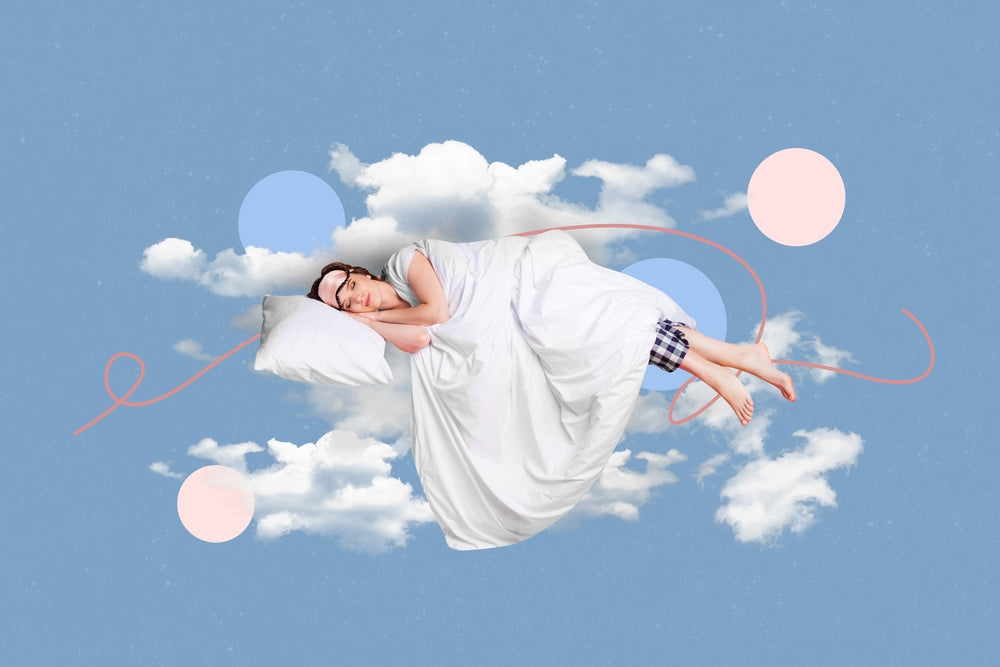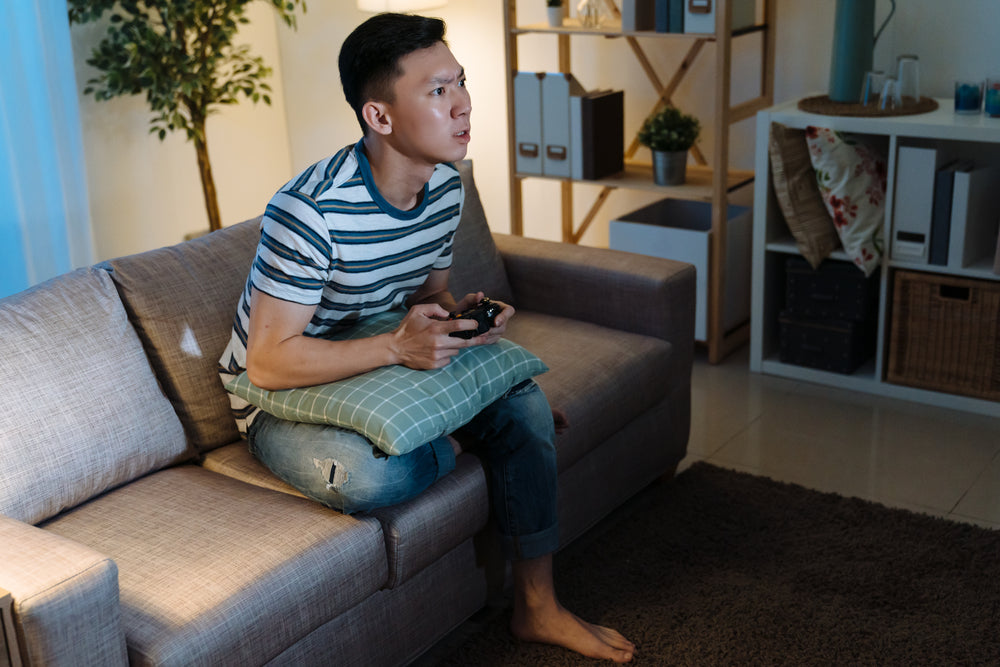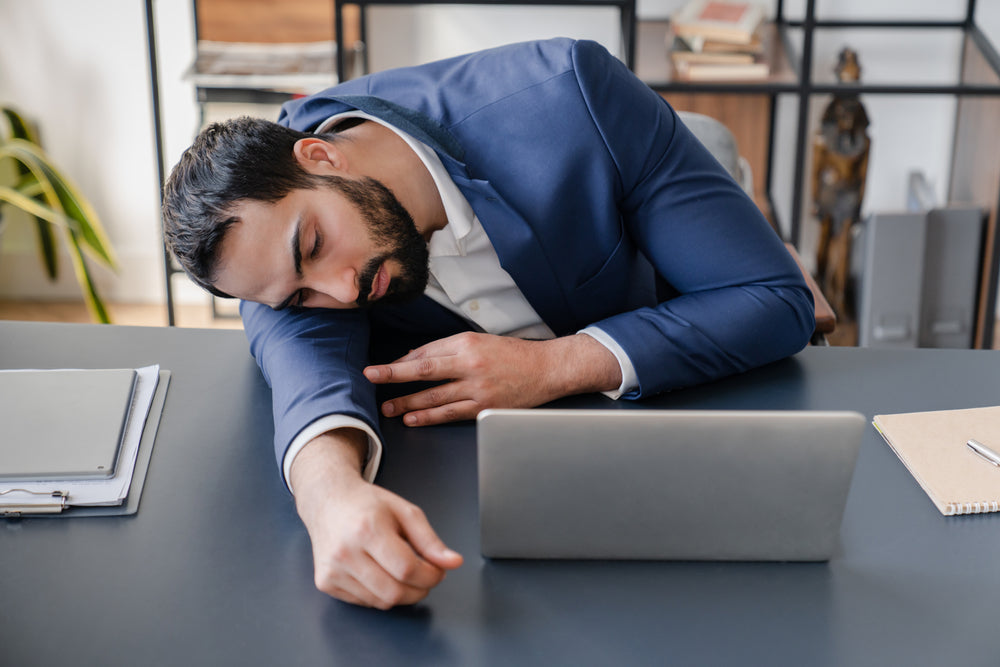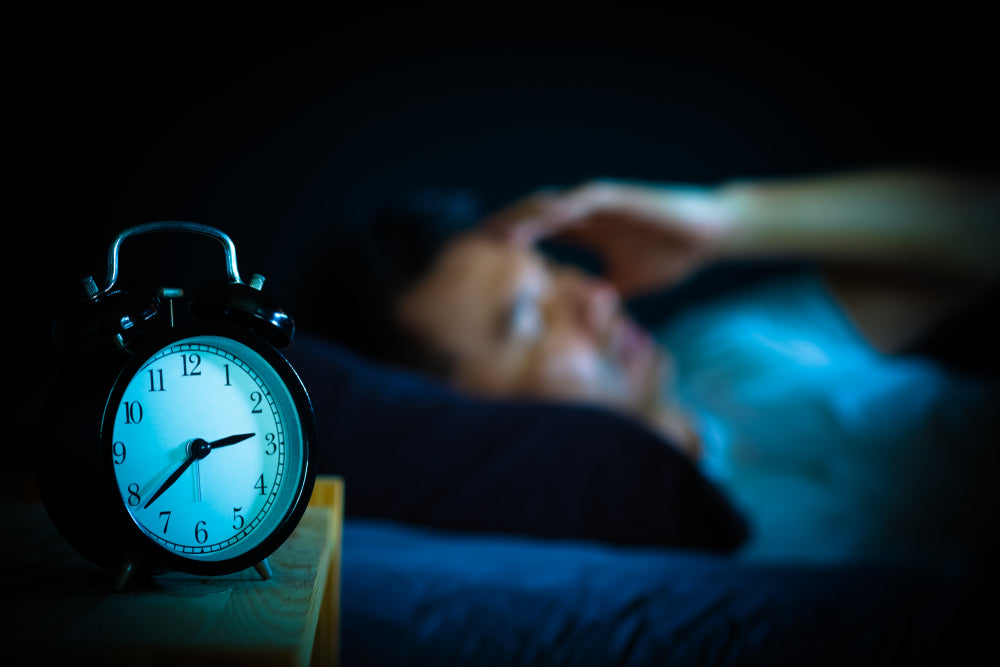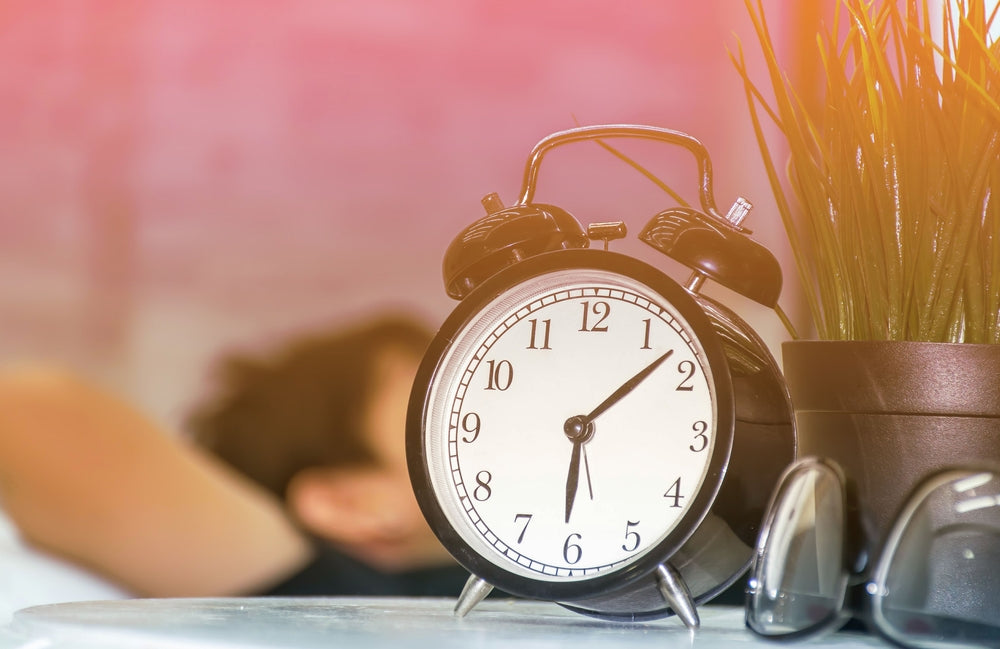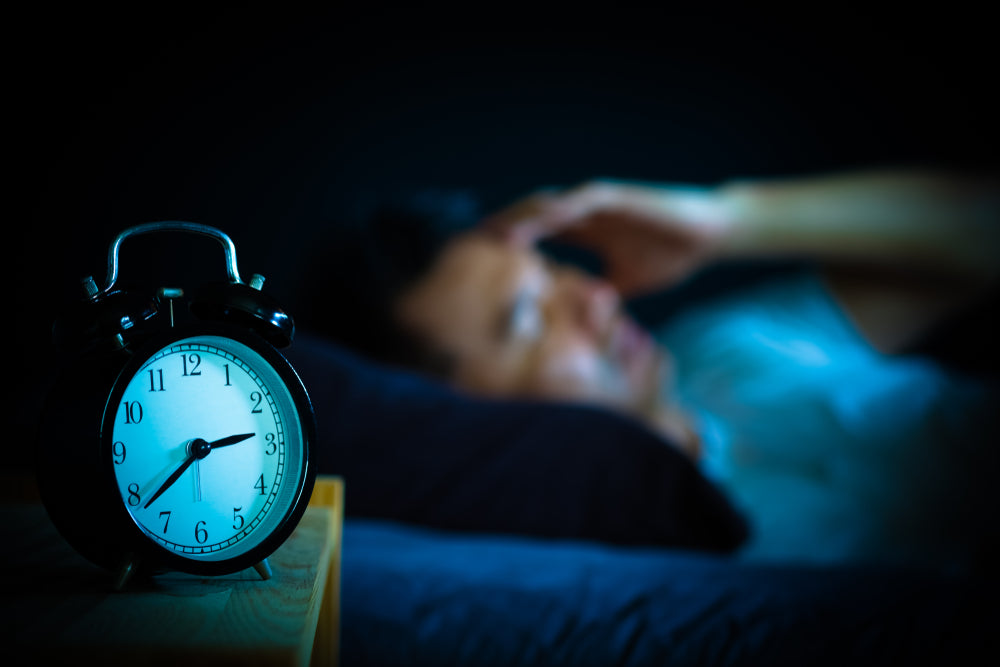Free U.S. Shipping On Orders Over $150
5 Types of Dreams and What They Indicate
Posted on
Whether dreams have meanings or not is something science has yet to settle. But different types of dreams can indicate important aspects of your mental health, physical health and sleep quality. Here are five different types of dreams and what they indicate. 1. Standard/Regular Dreams If you have regular dreams, that’s a sign that your sleep quality and overall health are generally fine. But what exactly makes dreams regular or standard? Here are a few signs. You have mostly pleasant dreams, with a few occasional strange ones thrown in. Your dreams are highly visual with a major focus on imagery rather than touch or smell. You usually vaguely remember your dreams and often you might completely forget what you dreamt...
What Your Dreams Say About How Well You Are Sleeping
Posted on
Dreams can tell you a lot about how stressed you are, your desires and your fears. Some dreams are meaningless, formed from the random firing of neurons while we are asleep. Dreams can also be a good indicator of how well you are sleeping. When your sleep quality deteriorates, for whatever reason, your dreams are one of the first things to change. You may have different kinds of dreams, more or fewer dreams, or even have no dreams at all. Here’s what your dreams say about your sleep quality. If you want to learn more about dreams, their role and what they mean, we have a post on the science of dreams. Does Sleep Quality Affect Dreams? Dreams do not...
Revenge Bedtime Procrastination: What It Is and How It Affects Your Sleep and Health
Posted on
Revenge bedtime procrastination is something you probably do all the time but don’t realize it has a name or that it’s a major area of research. It refers to the habit of staying up late voluntarily and needlessly, even though you know it’s bad for you. All those nights you stay up late gaming, binging on Netflix or browsing on your phone — that’s revenge bedtime procrastination and it’s bad. Causes of Revenge Bedtime Procrastination Revenge bedtime procrastination (what we’ll call RBP henceforth) is actually a fairly well studied psychological phenomena. For many of us, our days are super busy and almost completely taken up by work, errands and family. We barely have time for ourselves. If you are lucky,...
Does Tracking Your Sleep Really Help? The Pros & Cons of Sleep Trackers
Posted on
I don’t know if you remember, but there was a time when we were all crazy about wearables. Fitbit was in its heyday and it made fitness tracking super popular. It was also around when sleep tracking started picking up. These days, the hype has died down a bit but sleep tracking is still popular especially for people who want to boost their productivity or are worried they are not getting good quality sleep. More devices than ever, from smartwatches to smartphones and even smart mattress pads, can track your sleep. But are sleep trackers really helpful? Can you improve your sleep quality by monitoring your total sleep time, sleep phases, sleep latency, sleep efficiency and other metrics? Or are...
What Is Sleep Debt and How Does It Affect You?
Posted on
Think of sleep as depositing money in a bank. Each time you sleep for 8 hours (or whatever time your body needs to feel rested), your account is all good. But fall short and your sleep account goes into the red. You experience fatigue, daytime sleepiness, irritability and other symptoms. That’s called sleep debt or sleep deficit. It is the difference between how much sleep you need and how much sleep you actually get. Sleep debt affects your mental health, productivity and overall health. In some cases, it can be downright dangerous. Luckily, it’s pretty easy to repay the debt — just go to sleep. What Causes Sleep Debt? Staying up too late is the most common cause of sleep...
Top 10 Natural Sleep Aids For Insomnia and Other Sleep Problems
Posted on
There are severe cases of insomnia and other sleep disorders that warrant prescription medication. But for most people who are struggling to sleep well, there’s no need to go that far. There are plenty of natural products that can improve your sleep quality from herbal teas to supplements. Here are the ten best home remedies and natural sleep aids for insomnia and other sleep problems. 1. Melatonin If you are struggling to fall asleep in the evening, you are probably not producing enough melatonin. This is the hormone that helps us relax and prepares the body for sleep. Taking melatonin supplements can help you fall asleep easier. The standard advice is to start at 0.5mg about an hour before you...
Tips for Insomniacs: What To Do When You Can't Sleep At Night
Posted on
One of the worst things to do when you can’t sleep at night is trying to force yourself to sleep. All that stuff about counting sheep or counting backwards from 100 usually doesn't work with insomnia. If anything, the more you try to force sleep, the harder it gets to sleep. Whatever you do, do not turn on your phone. You will end up staying awake for hours. In fact, if you often struggle with insomnia don’t go to bed with your phone to eliminate any temptation to browse when you can’t sleep. Here’s what to do instead when you find yourself tossing and turning. 1. Get Out of Bed Normal sleep latency (how long it takes to sleep) is...
5 Types of Polyphasic Sleep Patterns You Probably Shouldn't Try
Posted on
You should, ideally, get 7-9 hours of sleep each night with few to no interruptions. This type of sleep where you snooze in one continuous segment is called monophasic sleep. Believe it or not, it is a surprisingly recent phenomena in human history. For most of the time man has been around, people slept in multiple periods, usually two. This is called biphasic sleep. There’s also polyphasic sleep, where you sleep more than two segments throughout the day. Polyphasic sleep was and is typically common with famous and eccentric people like Nikola Tesla and Winston Churchill. Today, people practice polyphasic sleep to try and get more out of their day. But whether polyphasic sleep improves productivity is something research has...
What To Do When You Can't Sleep At Night (Don't Stay in Bed!)
Posted on
One of the worst things to do when you can’t sleep at night is trying to force yourself to sleep. All that stuff about counting sheep or counting backwards from 100 usually doesn't work with insomnia. If anything, the more you try to force sleep, the harder it gets to sleep. Whatever you do, do not turn on your phone. You will end up staying awake for hours. In fact, if you often struggle with insomnia don’t go to bed with your phone to eliminate any temptation to browse when you can’t sleep. Here’s what to do instead when you find yourself tossing and turning. 1. Get Out of Bed Normal sleep latency (how long it takes to sleep) is...
5 Types of Polyphasic Sleep Patterns You Probably Shouldn't Try
Posted on
You should, ideally, get 7-9 hours of sleep each night with few to no interruptions. This type of sleep where you snooze in one continuous segment is called monophasic sleep. Believe it or not, it is a surprisingly recent phenomena in human history. For most of the time man has been around, people slept in multiple periods, usually two. This is called biphasic sleep. There’s also polyphasic sleep, where you sleep more than two segments throughout the day. Polyphasic sleep was and is typically common with famous and eccentric people like Nikola Tesla and Winston Churchill. Today, people practice polyphasic sleep to try and get more out of their day. But whether polyphasic sleep improves productivity is something research has...
Quick links
Contact
6063 Hudson Road #160
Woodbury, MN 55125
Yo@hercLeon.com

